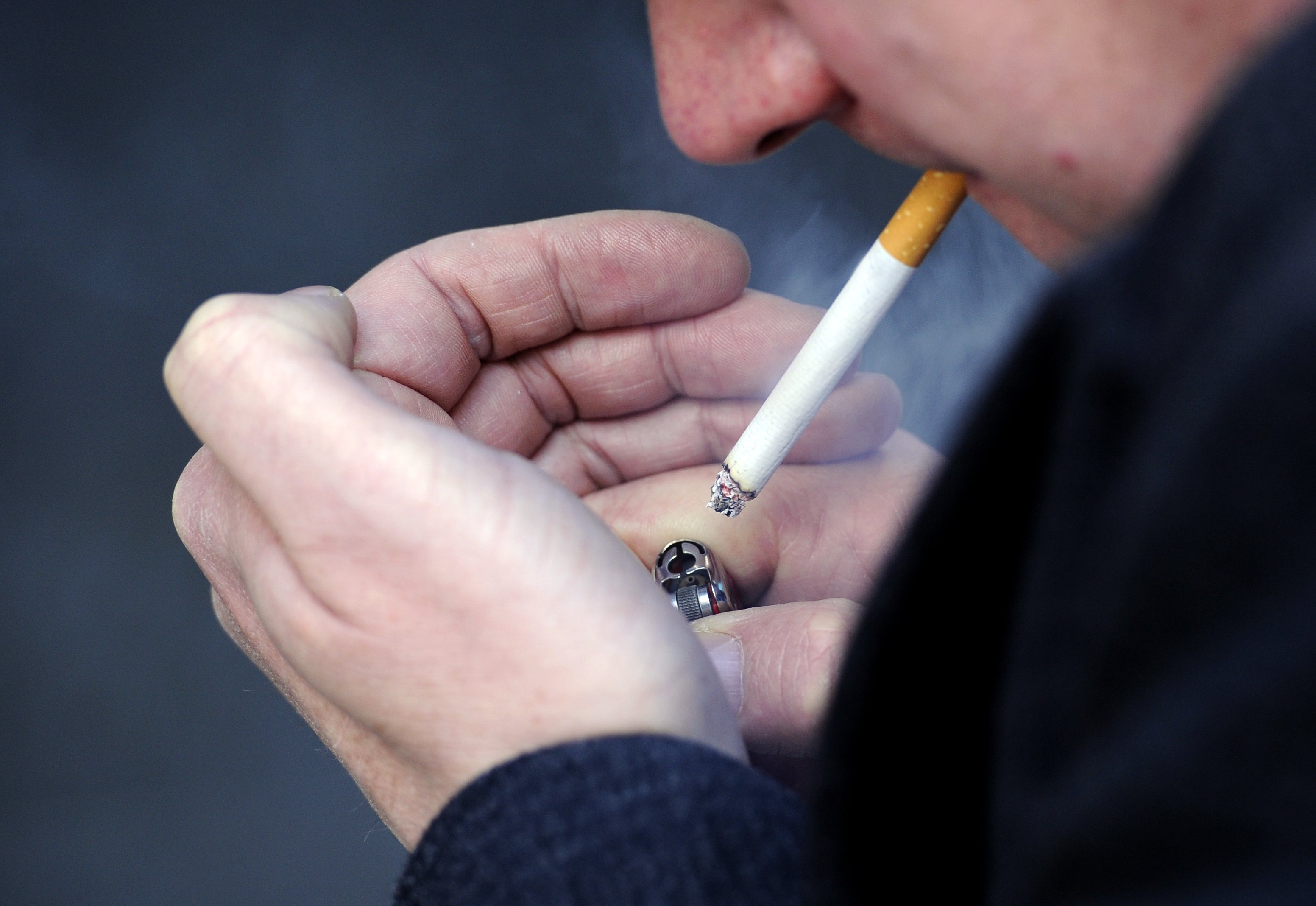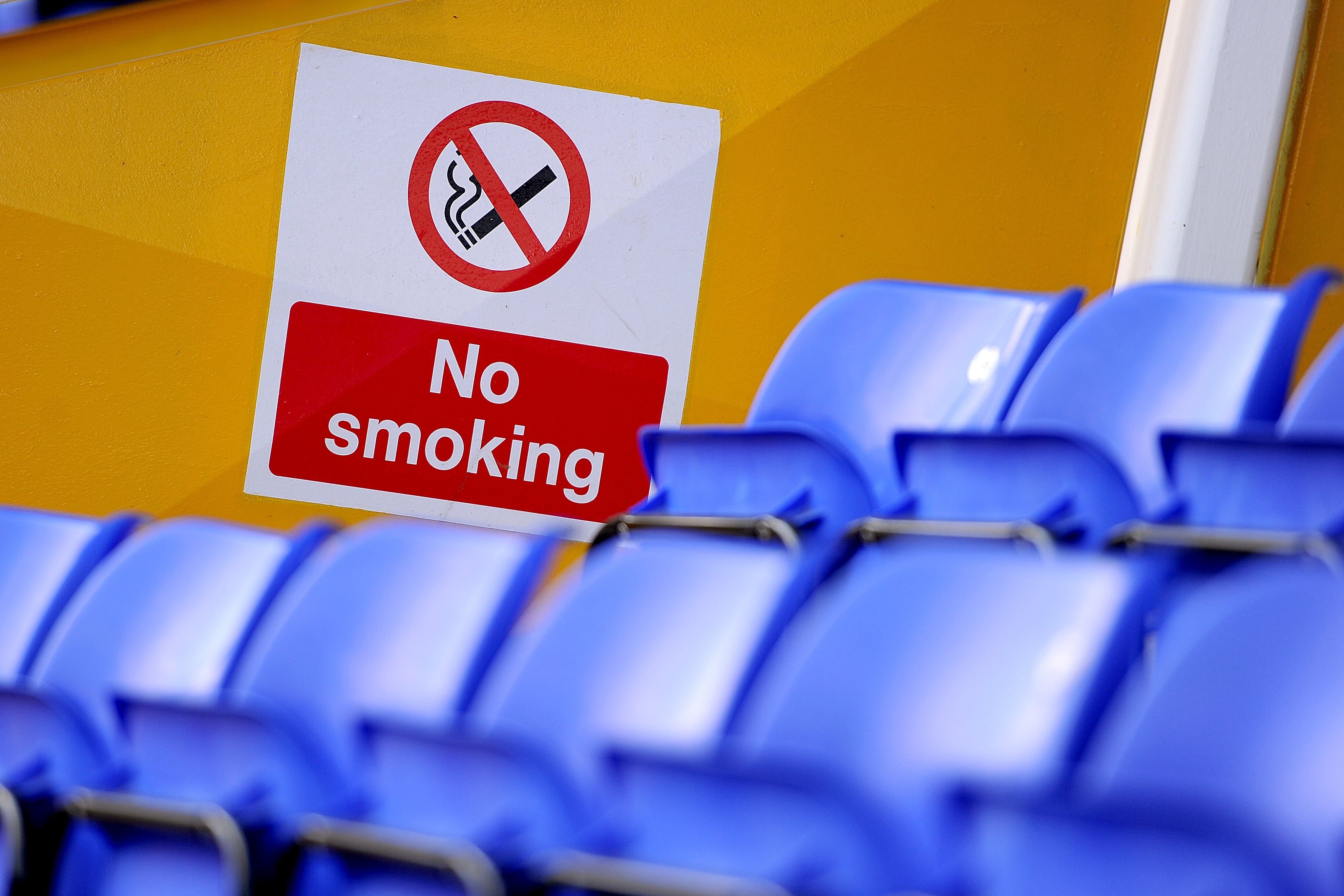Plans to ban smoking in beer gardens a ‘nail in the coffin’ for pubs
Smoking claims 80,000 lives a year

Your support helps us to tell the story
From reproductive rights to climate change to Big Tech, The Independent is on the ground when the story is developing. Whether it's investigating the financials of Elon Musk's pro-Trump PAC or producing our latest documentary, 'The A Word', which shines a light on the American women fighting for reproductive rights, we know how important it is to parse out the facts from the messaging.
At such a critical moment in US history, we need reporters on the ground. Your donation allows us to keep sending journalists to speak to both sides of the story.
The Independent is trusted by Americans across the entire political spectrum. And unlike many other quality news outlets, we choose not to lock Americans out of our reporting and analysis with paywalls. We believe quality journalism should be available to everyone, paid for by those who can afford it.
Your support makes all the difference.Proposed plans to ban outdoor smoking, including in beer gardens and outside stadiums, would be another “nail in the coffin” for pubs and bars, industry leaders have said.
According to leaked plans, the Government is set to ban smoking in some outdoor areas to improve public health.
The indoor smoking ban could be extended to cover other locations including small parks, outdoor restaurants and hospitals.
Prime Minister Sir Keir Starmer is supportive of the plans.
Reem Ibrahim, acting director of communications at the Institute of Economic Affairs thinktank, said banning outdoor smoking would be “another nail in the coffin for the pub industry”.
She said: “The Government’s own impact assessment concluded that banning smoking outdoors will lead to pub closures and job losses.
“Pubs and other private venues should be able to determine their own outdoor smoking rules – just as they should be allowed to decide whether to play music, serve food or show football on TV.
“Smoking rates are already declining in the UK, in large part due to smokers switching to safer alternatives to combustible cigarettes.
“The Government should look to countries like Sweden, which has attained the lowest prevalence of smoking in the world not by implementing nanny state measures like this proposal, but by allowing adults to choose safer and healthier products.”

Michael Kill, chief executive of the Night Time Industries Association, said reports of Government plans to ban smoking in some outdoor areas “have understandably caused concern across the sector”.
He said: “This raises the critical question: Are we on the brink of becoming a nanny state? What is next?
“While these measures may rightly be driven by public health considerations, they risk dividing opinion and imposing yet another regulatory burden on businesses already facing considerable challenges.
“At a time when our industry desperately needs the freedom to trade, the last thing we need is further barriers.”
Kate Nicholls, chief executive of UKHospitality, said the move would bring “serious economic harm” to hospitality venues.

She said: “You only have to look back to the significant pub closures we saw after the indoor smoking ban to see the potential impact it could have.
“This ban would not only affect pubs and nightclubs, but hotels, cafes and restaurants that have all invested significantly in good faith in outdoor spaces and continue to face financial challenges.”
A Government spokesperson did not deny if such plans were on the table, saying: “We don’t comment on leaks.
“Smoking claims 80,000 lives a year, puts huge pressure on our NHS and costs taxpayers billions. We are determined to protect children and non-smokers from the harms of second-hand smoking.
“We’re considering a range of measures to finally make Britain smoke-free.”

In 2007, under the last Labour government, smoking in enclosed public places and workplaces was made illegal across the UK.
According to health charity Action on Smoking and Health (ASH), in the year following the introduction of smoke-free laws, there was a 2.4% reduction in hospital admissions for heart attacks in England, saving the NHS £8.4 million in the first year alone.
The first year after the introduction of the indoor smoking ban, also saw a 12.3% reduction in hospital admissions for childhood asthma, equivalent to 6,803 fewer admissions over three years.
Former prime minister Rishi Sunak announced plans to crack down on smoking through his flagship Tobacco and Vapes Bill last year.
The Bill – dubbed the “greatest piece of public health legislation in a generation” – had earned wide cross-party support and was progressing through Parliament when the General Election was called.
Charities and health experts were dismayed when the Bill was shelved as a result.
Deborah Arnott, chief executive of ASH, said: “The priority is to get the Bill back in Parliament and put on the statute book, to end smoking for the next generation and curb youth vaping.
“ASH would support the inclusion of powers to extend smoke-free laws outdoors, subject to consultation.
“The Government is catching up with what the public expects, and that’s not to have to breathe in tobacco smoke in places like children’s play areas and seating areas outside pubs, restaurants and cafes.
“However, it’s also important to ensure that there are still outdoor areas where people who smoke can smoke in the open air, rather than inside their homes.”